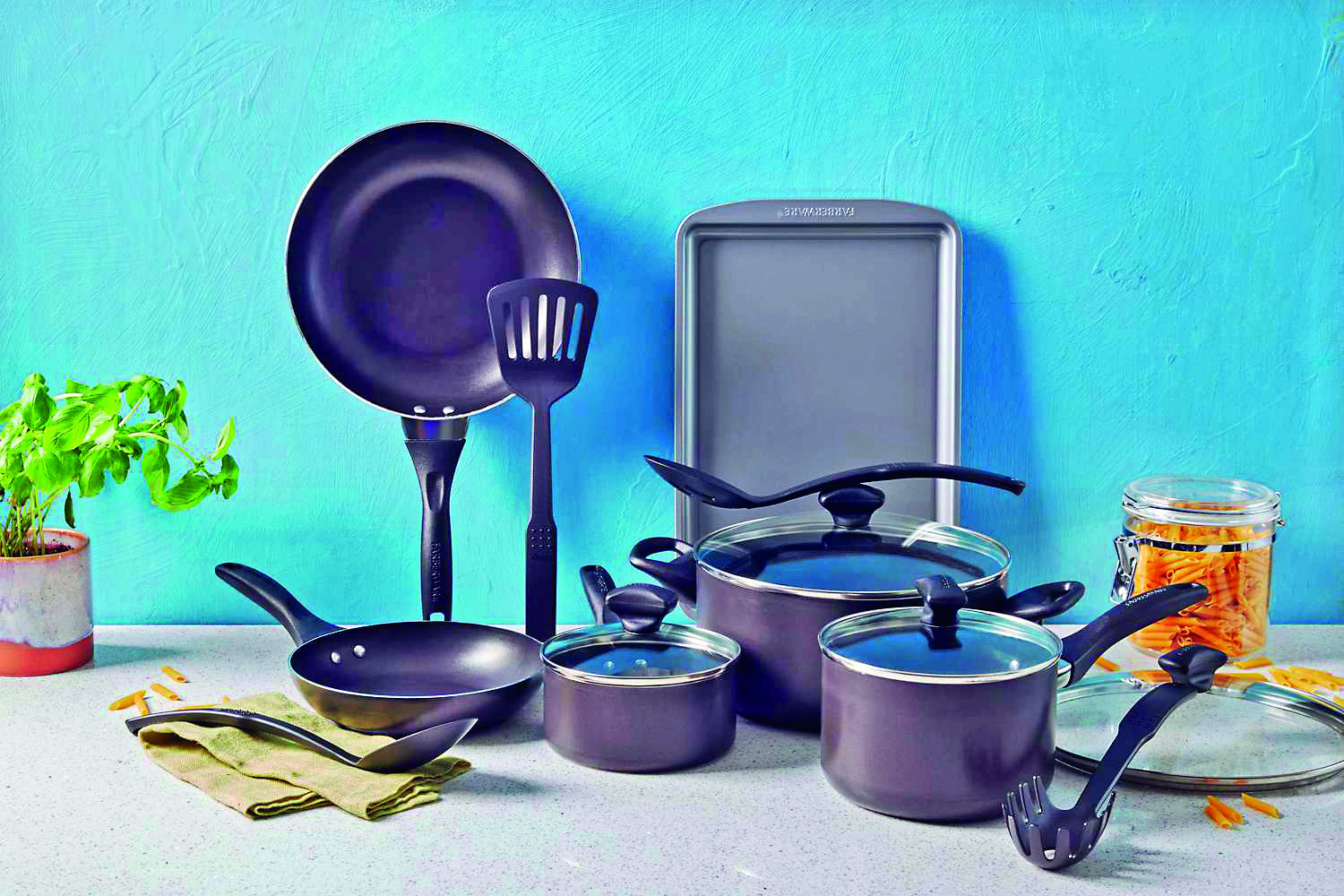Safe cookware matters, keeps toxins away

For food to be nutritious a lot depends on the cookware used at home besides the ingredients and cooking method. Using certain cookware with specific materials for cooking can lead to health risks. (Image by arrangement)
There’s concern that some toxic metals or other chemicals could be released from cookware into your foods. The potential risks of cookware depend on which kind of cookware you are using and how you are using them. Choose cookware that reduces the risk of toxic leaching (a process where substances are dissolved and removed from a solid by a solution)
Cooking convenience should not overlook potential health risks as far as cookware goes. Mugdha Pradhan Functional Nutritionist, CEO Founder of iThrive, a Pune-based health and wellness platform, says “The wrong selection of utensils can affect health, especially if people do not know about the dangerous affiliations of inappropriate utensils. It is the long-term implication of these utensils in daily use at home that results in the steady deposition of these chemicals in tissues and may sometimes culminate in health complications. People should avoid brass utensils with kadai (silver-looking lining), as this lining is made of lead and it will lead to lead overload and poisoning. Wooden spoons, especially in monsoons, because of the humidity, can have mold growth if not cleaned properly.”
It is important to know that non-stick and ceramic pans can adversely affect the user’s health if said utensils are chipped or scratched. Manapuram Venata Naidu, Corporate Chef, United Telugu Kitchens, says, “Using utensils, made from plastic or metal, poses several risks to food safety and health. For instance, plastic utensils can melt or leach harmful substances into food, while metal utensils might rust or corrode, leading to potential contamination. Inadequate cleaning of these utensils can also contribute to food-borne infections, further compromising health. Plastic utensils often contain brominated flame retardants (BFRs), which can lead to chemical contamination and potential human exposure to these hazardous compounds.”
Best Cookware
When food is cooked in the right kind of cookware, it prevents the loss of nutrients by allowing it to cook at an even temperature. Dr Yogita Goradia, Clinical Dietician at Criticare Hospital Mumbai states, “Iron cookware is highly recommended due to its ability to fortify food with iron, an essential nutrient. It is durable and can withstand high temperatures, making it a practical choice for daily cooking. Stainless steel is an excellent option. It is non-reactive, meaning it does not leach harmful substances into food, and it is easy to clean and maintain. Unlike cast iron, stainless steel does not require seasoning and will not interact with acidic or alkaline foods, preserving the taste and integrity of your meals”
Best Cookware
When food is cooked in the right kind of cookware, it prevents the loss of nutrients by allowing it to cook at an even temperature. Dr Yogita Goradia, Clinical Dietician at Criticare Hospital Mumbai states, “Iron cookware is highly recommended due to its ability to fortify food with iron, an essential nutrient. It is durable and can withstand high temperatures, making it a practical choice for daily cooking. Stainless steel is an excellent option. It is non-reactive, meaning it does not leach harmful substances into food, and it is easy to clean and maintain. Unlike cast iron, stainless steel does not require seasoning and will not interact with acidic or alkaline foods, preserving the taste and integrity of your meals”
Earthen pots are gaining popularity due to their health benefits and ability to enhance the flavour of food. Cooking in earthen pots is ideal for slow or medium-flame cooking, preserving the nutrients in the food.
“Aluminium cookware can be used if it is of high quality and if the food is not cooked directly in it, but rather with an indirect heating method. Aluminium can leach into food, especially when cooking acidic or salty dishes, leading to health issues.,” adds Yogita.
Besides cooking storing matters
Choosing the right storage solution helps preserve food quality and maintains safety, Avoid plastic containers for storage and reheating. Microplastics from plastic containers chipping or degrading over time is one of the causes of their consumption of microplastics in their food. Avoid plastics being used in microwave ovens. as the plastic releases phenolic compounds and other toxic substances into the food. Such exposure is especially risky for babies because their immune system against such toxins is not fully developed,” adds Pradhan.
Besides cooking storing matters
Choosing the right storage solution helps preserve food quality and maintains safety, Avoid plastic containers for storage and reheating. Microplastics from plastic containers chipping or degrading over time is one of the causes of their consumption of microplastics in their food. Avoid plastics being used in microwave ovens. as the plastic releases phenolic compounds and other toxic substances into the food. Such exposure is especially risky for babies because their immune system against such toxins is not fully developed,” adds Pradhan.
Stainless steel containers are a viable option for storing food as they are odor-resistant, ensuring that food. Flavors and smells do not permeate the metal. Also, Glass Containers do not leach chemicals and are safe for reheating in the microwave. Storing acidic foods like chutneys, and sambar in aluminium, iron, unlined brass, or copper vessels is unsafe.
Cookware needs to be cleaned thoroughly to avoid bacteria buildup and lower the risk of foodborne illness Avoid Metal scrubbers that scratch and damage the non-stick surface. Also, it is advisable to buy good quality products which have a certification of lead and arsenic-free material. By making informed choices about our cookware and storage jars we can significantly improve our overall health and well-being.
( Source : Deccan Chronicle )
Next Story

